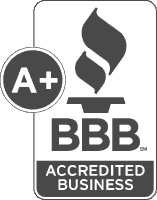As a victim of a personal injury, you may be wondering about the costs involved in hiring a personal injury attorney. It is important to understand the fees and factors involved before making a decision on legal representation. In this section, we will provide an overview of personal injury attorney fees and discuss the factors that can affect the costs involved in hiring a personal injury lawyer.
A personal injury attorney may charge in a variety of ways, such as a contingency fee, hourly rate, or flat fee. The rates and pricing can also vary depending on location, experience, and reputation. It is essential to understand these factors before selecting an attorney to represent you in your personal injury case.
Key Takeaways
- Personal injury attorney fees and pricing structures can vary depending on location, experience, and reputation.
- Contingency fees, hourly rates, and flat fees are common methods used to calculate personal injury attorney fees.
How Personal Injury Attorney Fees are Calculated
When it comes to hiring a personal injury attorney, there are several methods used to calculate fees. The most common fee arrangement is the contingency fee, where the attorney’s fees are contingent on winning the case. However, there are also hourly rates and flat fees that may be used.
Contingency Fees
Contingency fees are typically the most popular and beneficial fee arrangement for personal injury cases. This fee structure means that the attorney’s fees are contingent on a successful outcome. If the case is won, the attorney will be paid a percentage of the settlement or verdict, typically around 33% of the total amount. If the case is lost, the attorney isn’t paid.
One of the biggest advantages of a contingency fee is that it allows individuals who might not have the means to pay for legal services and upfront costs to pursue their case without incurring additional debt. This fee structure also incentivizes attorneys to work harder and smarter on behalf of their clients because their compensation is directly tied to the outcome of the case.
Hourly Rates
Hourly rates are another common fee arrangement used by personal injury attorneys. This fee structure means that the attorney charges the client a fixed amount for each hour of work they perform. Hourly rates typically range from $150 to $500 or more per hour, depending on the experience and reputation of the attorney and the location of the law firm.
One of the advantages of hourly rates is that clients have more control over the amount of work performed, and therefore the costs associated with the case. However, hourly rates could potentially lead to a higher overall bill if the case becomes more complex or time-consuming than initially expected.
Flat Fees
Flat fees are a less common fee arrangement used by personal injury attorneys. This fee structure means that the attorney charges a fixed amount for their services, regardless of the outcome of the case. Flat fees are typically used for simple and straightforward cases, such as drafting a contract or creating a will.
One of the advantages of flat fees is the transparency and predictability it provides. Clients know exactly how much they will be charged upfront and won’t be surprised by any additional costs. However, this fee structure may not be suitable for more complex cases where the amount of time and work required is uncertain.
Factors Affecting Personal Injury Attorney Fees
Personal injury attorney rates and pricing can vary widely depending on several factors. These factors can include the complexity of the case, the experience and reputation of the lawyer, and the location of the law firm. It is important to understand these factors to better assess the potential costs involved in hiring a personal injury attorney.
Case Complexity
The complexity of a personal injury case can greatly influence the attorney fees involved. Cases that involve extensive research, multiple parties, or a drawn-out legal process may require more time and resources from the attorney, resulting in higher fees.
On the other hand, cases with straightforward liability and damages may be resolved more quickly and with less expense. It is important to discuss the complexity of your case with your attorney from the outset to better understand the potential costs involved.
Experience and Reputation
The experience and reputation of the personal injury attorney can also significantly impact the rates and pricing of their services. Attorneys with many years of experience and a track record of successful cases may charge higher fees due to their expertise and reputation.
However, newer attorneys may offer lower rates as they build their practice and reputation. It is important to evaluate the experience and track record of any personal injury attorney you are considering and weigh this against their rates and pricing.
Location of Law Firm
The location of the law firm can also influence the rates and pricing of personal injury attorneys. Law firms in larger cities or more affluent areas may charge higher rates due to higher overhead costs and a larger pool of potential clients.
However, law firms in smaller towns or rural areas may offer more affordable rates due to lower overhead costs and less competition. It is important to consider the location of any potential personal injury attorney and evaluate this against their rates and pricing.
Understanding Contingency Fees
Contingency fees are a common method used by personal injury attorneys to charge for their services. Under this arrangement, the attorney agrees to represent the client and only receives payment if the case is successful, usually in the form of a percentage of the settlement or damages awarded.
Contingency fees can range from 25% to 40% of the total amount recovered, depending on the complexity of the case and the experience and reputation of the attorney. Generally, the higher the potential recovery, the lower the percentage, as the attorney is taking on more risk.
Advantages of Contingency Fees
One of the primary advantages of contingency fees is that they provide access to legal representation for those who might not be able to afford the high costs associated with hiring a personal injury attorney. Additionally, because the attorney only gets paid if the case is successful, there is a strong incentive to work hard on behalf of the client and to achieve the best possible outcome.
Potential Drawbacks of Contingency Fees
One potential drawback of contingency fees is that they may result in a lower overall recovery for the client. Because the attorney is taking a percentage of the settlement or damages awarded, the client may receive less than they would if they had paid for legal services on an hourly or flat fee basis. Additionally, because contingency fees are based on the outcome of the case, there is always a risk that the attorney may not be fully committed to the case or may devote less time to it if it appears unlikely to be successful.
Overall, it is important to carefully consider the advantages and potential drawbacks of contingency fees when deciding whether to hire a personal injury attorney and which payment method to use. Your attorney can help you evaluate your options and choose the best approach for your situation.
Hourly Rates vs. Flat Fees
When hiring a personal injury attorney, you may be faced with the choice of paying on an hourly rate basis or a flat fee basis. Both options have their advantages and disadvantages, and it’s important to understand the differences between them before making a decision.
Hourly Rates
Hourly rates are often used for cases that have a more uncertain duration, such as cases that may require additional investigation or negotiation. With hourly rates, you pay for the amount of time the attorney works on your case, usually in increments of 6 or 15 minutes. This can offer flexibility, but it can also make it difficult to predict the total costs of your case.
Hourly rates can also lead to potential conflicts of interest. Some clients may feel like their attorney is incentivized to spend more time on their case than necessary in order to increase their billable hours.
Flat Fees
Flat fees are a set amount that an attorney charges for a particular service, such as representing you in a negotiation or trial. Flat fees are often used for cases that have a more predictable duration and scope of work. Flat fees can provide transparency and predictability in terms of costs, which can be especially helpful when budgeting for legal expenses.
However, flat fees may not be suitable for cases that require additional work beyond what was initially anticipated. In such cases, it can be difficult for the attorney to adjust the fee accordingly without renegotiating the agreement.
Which one is right for you?
The choice between hourly rates and flat fees ultimately depends on your individual needs and the specifics of your case. If your case is relatively straightforward and you have a clear idea of the scope of work involved, a flat fee may be the better option. However, if your case is more complex and unpredictable, an hourly rate may be more appropriate.
It’s important to discuss your options with your attorney and get a clear understanding of how they calculate their fees. This can help you make an informed decision that aligns with your budget and legal needs.
Negotiating Personal Injury Attorney Fees
As we’ve discussed, understanding personal injury attorney fees is an important step in choosing the right lawyer for your case. However, it’s also essential to know how to negotiate these fees effectively.
Open Communication
The first step in negotiating personal injury attorney fees is to establish open communication with your lawyer. Make sure you understand how they charge their fees, what services are included, and what potential additional costs may arise. You should also feel comfortable asking questions and discussing your concerns openly.
Market Rates
It’s also important to research the market rates for personal injury attorneys in your area. This can give you an idea of what you can expect to pay and make sure you’re not being overcharged. You can ask for quotes from multiple attorneys and compare their rates to make sure you’re getting a fair deal.
Value Provided
When negotiating personal injury attorney fees, it’s essential to consider the overall value the attorney can provide in your case. A more experienced lawyer may charge a higher rate but may also be more likely to win your case or negotiate a higher settlement. Consider the potential outcomes of your case and how much value the attorney can add to your situation.
Conclusion
Negotiating personal injury attorney fees may seem overwhelming, but with open communication, research, and consideration of value provided, you can ensure that you are getting a fair deal. Remember to have open and honest discussions with your attorney and ask for clarification when needed. Ultimately, finding the right attorney at a fair price can make a significant difference in the outcome of your case.
Managing Personal Injury Attorney Costs
While hiring a personal injury attorney is important, managing the costs associated with legal representation is equally essential. Here are some practical tips to consider:
Create a Budget
One of the first steps you should take is to create a budget for your legal expenses. This will help you understand how much you can afford to spend on attorney fees and factor it into your overall financial plan.
Explore Alternative Fee Arrangements
Traditional hourly rates and contingency fees may not be the only options available. Consider alternative fee structures, such as flat fees or blended rates, that may align better with your budget and goals.
Discuss Costs Upfront
Be open and transparent with your attorney about your budget and expectations for the costs involved. This will help avoid any unpleasant surprises down the line.
Consider Financing Options
If paying legal fees upfront is not feasible, consider financing options such as personal loans or legal financing companies. However, be sure to carefully consider the terms and interest rates associated with any financing option.
By taking these steps, you can effectively manage the costs associated with hiring a personal injury attorney and secure the legal representation you need to pursue your case.
Conclusion
In conclusion, understanding personal injury attorney fees is crucial for anyone considering hiring a personal injury lawyer. As we have discussed throughout this article, there are several factors that can affect the costs involved, including the type of fee arrangement, the complexity of the case, and the experience and reputation of the lawyer.
It is important to approach the decision to hire a personal injury attorney with a clear understanding of the costs involved and how they align with the value provided. This may involve negotiating fees, exploring alternative fee arrangements, and managing legal expenses.
By taking a proactive approach to managing costs and making informed decisions, you can ensure that your legal representation provides the best possible outcome for your personal injury case.














